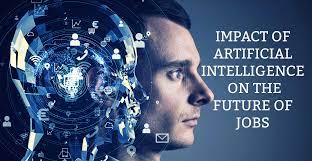The use of artificial intelligence (AI) is rapidly changing the landscape of work, creating both opportunities and challenges for organizations and employees. From automation to machine learning, AI is transforming the way we work and opening up new possibilities for innovation and growth. However, it also raises questions about the impact of AI on employment, job security, and the overall economy.
AI has the potential to revolutionize the workplace by automating repetitive tasks and improving productivity, but it also raises concerns about job displacement and the need for workers to develop new skills to stay relevant.
Opportunities
One of the most significant benefits of AI is the potential to automate repetitive, time-consuming tasks, freeing up employees to focus on more complex and creative work. This is leading to job displacement in some industries, but it is also creating new jobs in the field of AI. This can lead to greater output per worker, as well as improved efficiency and innovation in the workplace.
AI can also help organizations to make better decisions, improve productivity, and reduce costs. For example, AI can be used to analyze large amounts of data and identify patterns that humans may not be able to detect, leading to more informed and accurate decision-making. This is freeing up humans to focus on more strategic tasks.
AI can also enable organizations to develop new products and services that were not possible before. With the help of AI, companies can create personalized experiences for customers, improve supply chain management, and even develop new business models.
Challenges
While the benefits of AI are significant, there are also potential challenges that need to be addressed. One of the main concerns is the impact of AI on employment, as many jobs that are currently performed by humans may be replaced by automation. This can lead to job loss and create a skills gap, as workers may not have the skills needed to adapt to new roles.
This can lead to a mismatch between the skills of existing workers and the demands of the new economy, creating challenges for individuals and businesses alike. Another challenge is the need for appropriate training and education, to ensure that workers have the skills and knowledge needed to succeed in an AI-driven workplace.
Another challenge is the ethical implications of AI, particularly in relation to data privacy and security. As AI becomes more sophisticated, it can be used to collect and analyze vast amounts of personal data, raising concerns about how this data is being used and who has access to it.
Way Forward
To prepare for the future of work, employees need to develop skills that are less susceptible to automation, such as creativity, critical thinking, and emotional intelligence.
Employers also have a responsibility to invest in their employee’s education and training and to create a culture that supports ongoing learning and development.
Finally, policymakers need to play a role in shaping the future of work, by developing policies that support the growth of AI while also ensuring that workers are protected and have access to the education and training they need to succeed in the new economy.
Conclusion
The rise of AI presents both opportunities and challenges for the future of work. While it has the potential to transform the way we work and drive innovation and growth, it also raises concerns about the impact on employment and the ethical implications of AI. It is essential for organizations and policymakers to address these challenges and work together to ensure that AI is used responsibly and for the benefit of society as a whole. With careful planning and investment in education and training, we can ensure that the future of work is one where humans and AI work together to achieve new levels of productivity and success
